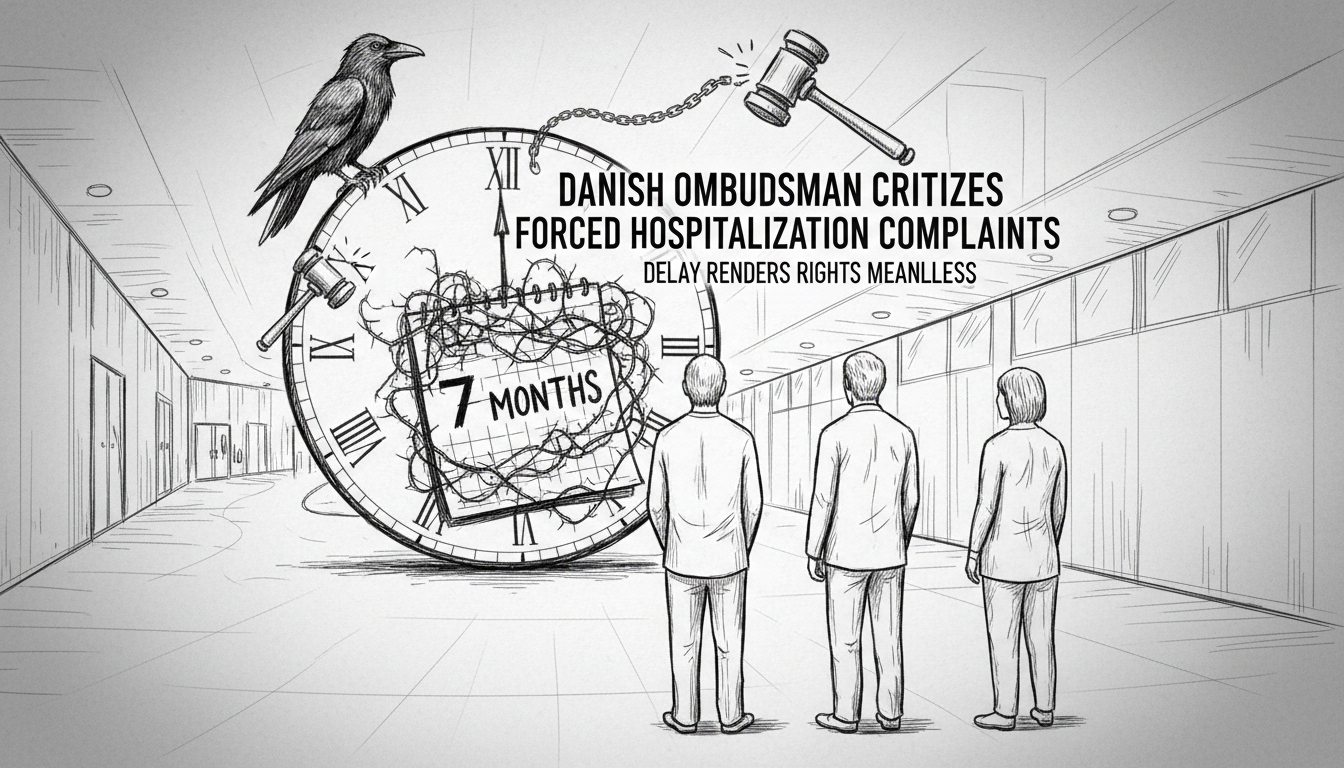Patients who file complaints about forced hospitalization in Denmark face unacceptable waiting times that violate their legal rights. The Parliamentary Ombudsman has identified a critical seven-month delay in processing these cases. This extended wait renders complaints essentially meaningless since most patients complete their treatment periods before their cases receive review.
Forced hospitalization represents one of the most severe interventions in Denmark's welfare system. Patients subjected to these measures maintain fundamental rights under both the Danish Constitution and European human rights conventions. They possess the legal entitlement to challenge their detention through formal complaints. The current processing backlog undermines these protections completely.
Copenhagen integration specialists express deep concern about these findings. The Danish welfare system prides itself on timely access to justice and proper oversight mechanisms. A seven-month delay contradicts core principles of Scandinavian social policy. Municipal social centers across Denmark report similar challenges in mental health service coordination.
Community mental health advocates describe the situation as deeply troubling. They note that forced hospitalization already creates traumatic experiences for vulnerable individuals. Adding excessive complaint processing times compounds the psychological distress. Many patients feel their voices remain unheard within the system.
Danish social policy experts point to broader implications beyond individual cases. Systematic delays in complaint processing suggest structural problems within Denmark's mental health services. They question whether adequate resources exist to handle these sensitive cases properly. The situation raises concerns about oversight and accountability mechanisms.
Recent integration statistics reveal troubling patterns in mental health service accessibility. Approximately 68% of forced hospitalization cases involve some form of complaint filing. Only about 12% of these complaints receive resolution while patients remain in treatment. This creates significant barriers to proper legal recourse.
Danish immigration policy intersects with these mental health challenges in complex ways. Non-native Danish speakers often face additional hurdles when navigating complaint procedures. Language barriers and cultural differences can complicate an already difficult process. Municipal integration services struggle to provide adequate support.
The Ombudsman's criticism carries substantial weight in Danish administrative oversight. This independent body monitors public authorities and ensures legal compliance. Their findings typically prompt immediate corrective actions from relevant ministries. The current mental health service delays demand urgent attention.
Copenhagen municipality officials acknowledge the problem requires immediate addressing. They cite staffing shortages and increasing case volumes as contributing factors. Internal reviews aim to identify procedural bottlenecks and resource gaps. The municipality promises faster processing times by next quarter.
Danish society faces broader questions about mental health service quality. The current complaint processing delays reflect systemic challenges beyond simple administrative backlogs. They indicate potential flaws in how Denmark handles its most vulnerable citizens during crisis moments.
The situation demands comprehensive reform according to social policy analysts. They recommend increased funding for mental health oversight bodies. They also suggest simplified complaint procedures for patients undergoing treatment. These changes could help restore confidence in Denmark's patient protection systems.
International observers watch these developments closely. Denmark's reputation for efficient social services faces scrutiny when basic rights protections encounter such significant delays. The resolution of this issue will demonstrate the system's capacity for self-correction and improvement.

